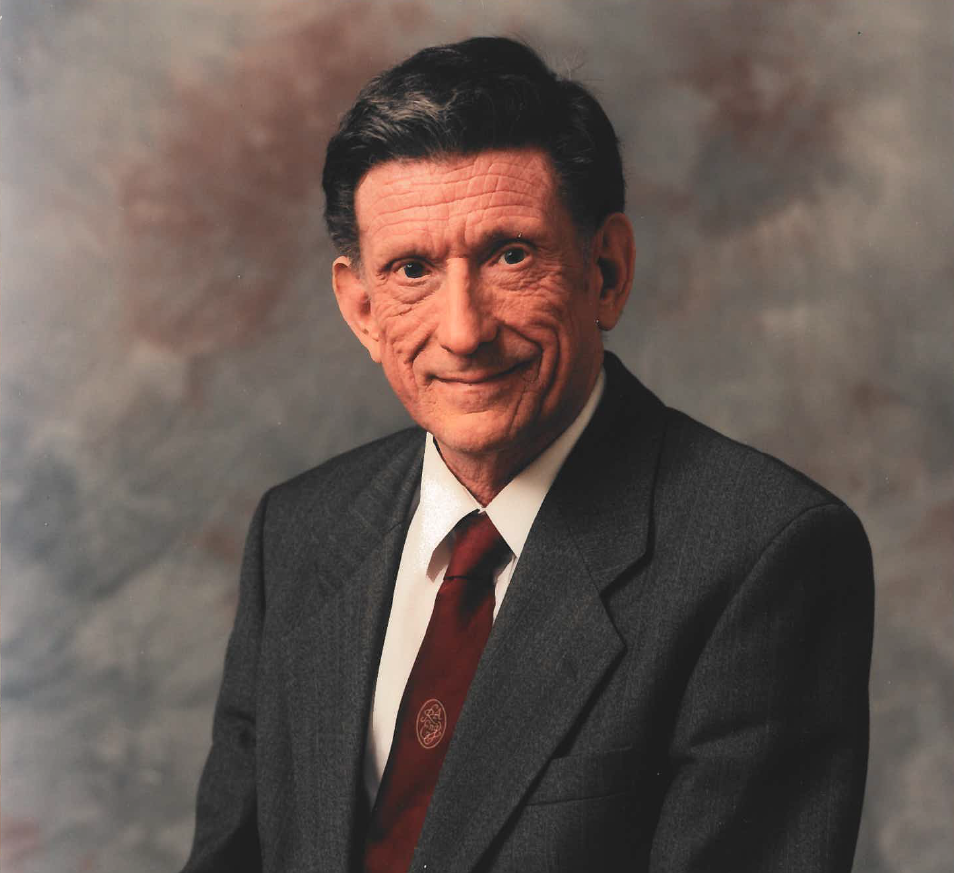Richard Allsop (1959)
1940-2024

Richard Allsop was an adept mathematician whose interpersonal skills enabled him to promote road safety worldwide. He was renowned for his leadership in academia and the transport profession, where he was known for his constructive and effective contributions. In his work, he considered the likely response of those affected by changes in opportunity, provision and regulation, and the effect that this would have on policy objectives. The benefits of his work extended beyond his colleagues and those whom he met to members of the public whose safety and wellbeing were paramount in Allsop’s considerations.
Allsop matriculated to Queens’ College as an open scholar and progressed, winning college and named prizes annually. He wrangled to his distinguished graduation in Part III of the mathematical tripos. Presented with offers to research for a doctorate in pure mathematics and to apply his quantitative analytical skills in transport studies, he chose the latter on the basis that he could thereby make a greater immediate contribution to society. He therefore took an appointment as Temporary Scientific Officer at the Road Research Laboratory (RRL) to work on transport matters that he had encountered during vacation placements.
Amongst Allsop’s tasks at the RRL was a statistical analysis of survey data from Grand Rapids, Michigan on the role of the drinking driver in traffic accidents. His methodical work on this provided factual evidence used to support the strengthening of UK drink-drive legislation in 1967. His interest in this topic persisted throughout his career, on which he argued for a reduction of the legal limit for driving, reasoned around consideration of the effects that this could have on different segments of the driving population. Other road safety topics on which he contributed included safety helmets for motorcycle riders, seatbelts for car occupants, speed limits, daylight saving time, and design of urban networks to manage traffic. The theme of road safety became central to Allsop’s interests, in which he took leading roles with the influential UK Parliamentary Advisory Council for Transport Safety (PACTS) and European Transport Safety Council (ETSC), which he continued for the remainder of his life.
An opportunity for a doctorate in transport studies drew Allsop to UCL, where he integrated into the eclectic culture. This founded his academic career, which took him rapidly to professorial appointments at the University of Newcastle upon Tyne, where he founded the Transport Operations Research Group, and on return to at UCL where he directed the Centre for Transport Studies for 21 years and remained afterwards, eventually becoming emeritus. His curriculum design, lecturing and research supervision were effective in capturing and developing the interest of students from a wide range of disciplines, recruiting many to academic and professional careers. Although discreetly proud to be an alumnus of Queens’ and a fellow of UCL, Allsop engaged wholeheartedly with other universities in the UK and abroad. In his engagement with students, colleagues and peers elsewhere, Allsop explored their interests and levels of knowledge so that he could formulate advice to them tactfully with the effect that it was welcomed and accepted widely.
A strong interest in international activities and their organisation was reflected in committee membership of his school’s United Nations Society at secondary school. He developed this at college, representing it at the Cambridge University United Nations Association for which he was also business secretary. He served as Queens’ College organiser for War on Want and secretary of the Refugee Adoption Group. This international perspective led Allsop to accept visiting fellowships abroad, including universities in Karlsruhe, Osaka, Christchurch NZ and Brisbane. These initiated technical visits for lectures and contact with transport professionals that spanned five continents. The ensuing advice to academics, governments and practitioners on road safety influenced policy and practice worldwide. In the scientific arena, he served for 16 years as convenor of the International Advisory Committee (IAC) of the International Symposia in Transportation and Traffic Theory (ISTTT), which continues as the long-established world-leading forum for research in the area.
Allsop’s work and contributions were recognised in several prestigious awards and honorary appointments. These included Fellow of the Royal Academy of Engineering (1996), OBE for services to traffic management and road safety (1997), the Highways and Transportation Award for Professional Distinction (1997) and Fellow of UCL (2000). For those who met and worked with Allsop, his thoughtful approach and kindly offered but keen advice set him apart. A close colleague once commented that people found it difficult to argue with each other when Allsop was present. He will be missed greatly by friends and colleagues, but especially so by his wife Frances who survives him.
